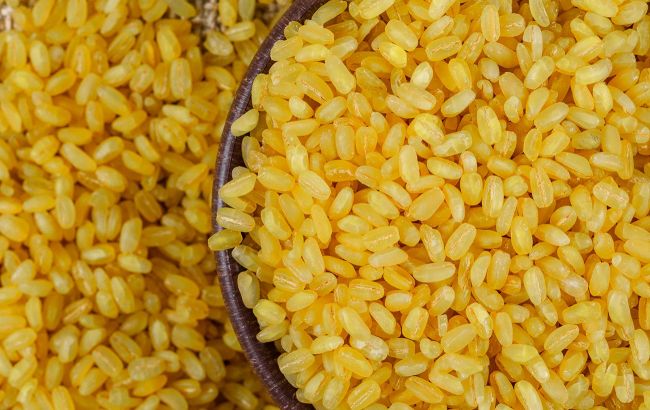Who should not eat bulgur: Check if you are on the list
 Bulgur is very useful, but not for everyone (photo: Freepik)
Bulgur is very useful, but not for everyone (photo: Freepik)
Bulgur is one of the most useful side dishes for meat, fish and vegetable dishes, rich in various trace elements and vitamins. At the same time, some people should not eat bulgur, as it can harm their health.
The following sources were used in the preparation of the material: Medfond, royalhouse.org.ua, Women2Women.
What you need to know about bulgur
Bulgur is wheat groats, harvested during the period of the so-called milk ripeness - in the initial phase of grain ripening. During processing, it is steamed, dried, cleaned of bran (remains of shells) and, if necessary, crushed.
Bulgur can have different degrees of grinding:
-
finely ground groats are used in baking bread
-
medium - for cereals and soups
-
coarse grinding is good for pilaf
Useful properties of bulgur
Bulgur contains various trace elements, vitamins and dietary fibers:
-
folic acid is useful for women's health
-
choline is an important substance for the nervous system and improves memory
-
vitamin PP (or nicotinic acid) is necessary for the body to metabolize carbohydrates, lipids and proteins
-
B vitamins (B1, B2, B5, B6) participate in tissue respiration and energy production, play an important role in maintaining both mental and emotional health
-
vitamin E has antioxidant properties, improves the tone and permeability of blood vessels, stimulates the formation of new capillaries
In addition, bulgur contains copper, potassium, phosphorus, magnesium, calcium, sodium, zinc, iron, selenium and manganese.
In general, according to nutritionists, bulgur has a positive effect on the digestive process, protects the cardiovascular system, prevents diabetes, fills the deficit of important nutrients, helps to lose weight, strengthens immunity and improves appearance .
In addition, bulgur belongs to cereals that are easily absorbed and digested (do not burden the condition), so dishes from it are often found in the diet of athletes and people whose professions are associated with regular heavy physical exertion.
 Bulgur is not only useful but also tasty (illustrative photo: pixabay.com)
Bulgur is not only useful but also tasty (illustrative photo: pixabay.com)
Who can't eat bulgur?
Despite the large number of useful properties, some people should use bulgur in limited quantities, or not to eat it at all.
Because whole grains contain more oxalate compounds than refined grains, bulgur can have a negative effect on people who have kidney disease.
Another risk is associated with the presence of gluten in bulgur. In some, it may cause digestive problems or other unwanted reactions. People with gluten intolerance should not eat bulgur.
A large amount of fiber in this cereal can harm gastritis or colitis. It is also advised to exclude it from the diet in the case of acute pancreatitis or cholecystitis.
In addition, people with diagnosed diabetes should not eat too much bulgur (it is best to use it boiled and in small portions).

